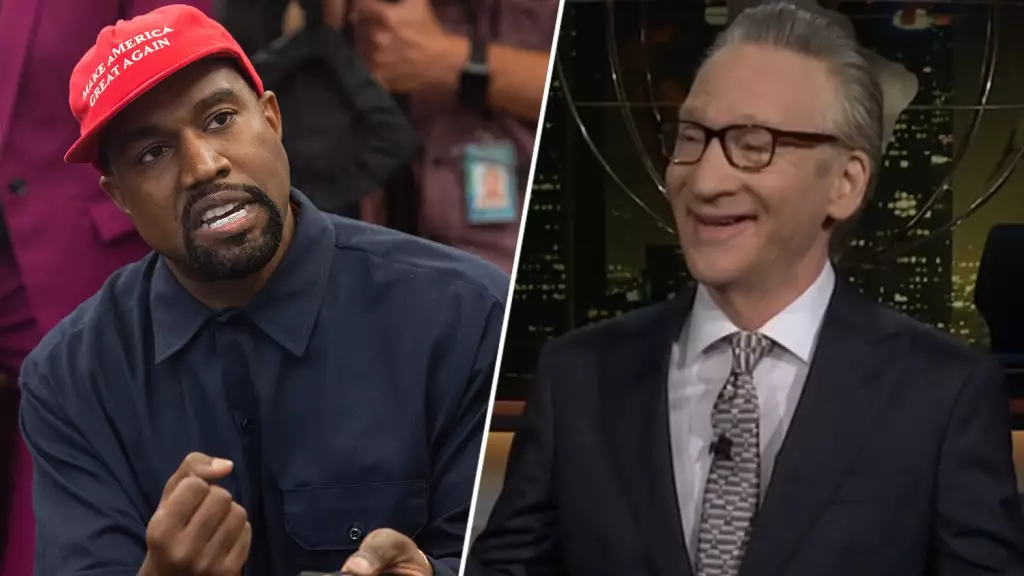Kanye West has once again thrust himself into the blistering spotlight of controversy with his incendiary comments regarding Jews and Nazism. This reemergence has provoked sharp criticism and concern, particularly from those who understand the historical implications of such rhetoric. Bill Maher, a prominent comedian and social commentator, used his platform on “Real Time” to address West’s alarming remarks, characterizing them as not just deeply offensive but potentially harmful given West’s vast audience. The intersection of celebrity culture and dangerous ideologies demands scrutiny, especially when someone with West’s influence makes such statements.
West’s declaration of love for Hitler is not merely a reckless outburst; it is an illustration of how unchecked celebrity voices can perpetuate hatred. Maher’s remarks bring to light the tension between free speech and accountability in the digital age. While some may brush off West’s tirades as attention-seeking stunts, we cannot ignore the tangible repercussions that such words can have on societal attitudes. The American Jewish Committee has voiced similar concerns, emphasizing that West’s continuous propagation of antisemitic sentiments contributes to a larger climate of hate. This becomes all the more critical when we consider the rising antisemitism worldwide, suggesting a need to actively combat such narratives rather than ignore them.
The relationship between West and political figures, particularly his overt support for former President Donald Trump, complicates his messaging. His call to pardon Sean ‘Diddy’ Combs—a musician facing serious legal troubles—further blurs the lines between friendship and political allegiance. Maher’s quip about West possibly angling for a political appointment underscores the absurdity of such a scenario, yet it reveals a deeper concern about the motivations behind celebrity actions. In pursuing so-called ‘clout,’ West risks trivializing critical social issues, replacing serious discourse with sensationalism.
The Annals of History remind us that antisemitism is far from a relic of the past; it is a living problem exacerbated by social media platforms that allow for the rapid spread of misinformation and hatred. West’s continued public statements serve as a reminder that, when given a microphone, individuals can either uplift or vilify entire communities. The American Jewish Committee stressed that unchecked hate compounds, making it imperative for influential figures in media and entertainment to condemn such rhetoric, rather than normalize it through silence.
In the shadow of his previous antisemitic outbursts, West issued an apology that seemed to show a glimmer of self-reflection. The sincerity of that apology, however, can be questioned given his latest declarations. Does West genuinely seek redemption, or is he simply playing the role of the provocateur, thriving on chaos? His statements not only impact Jewish communities; they also contribute to the erosion of meaningful dialogue about race, privilege, and responsibility in society.
As we navigate these turbulent waters, the reactions of public figures like Bill Maher remind us that confronting these complex issues requires courage and integrity. The narrative surrounding Kanye West serves as a cautionary tale—a demand for accountability in the face of rising hate, underscoring that with influence comes a profound responsibility to foster understanding rather than division.


Leave a Reply